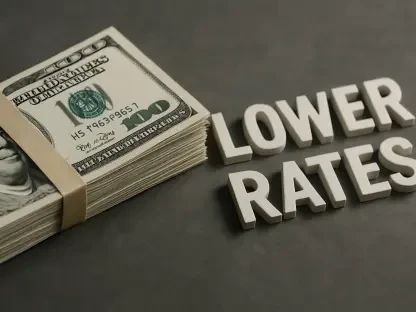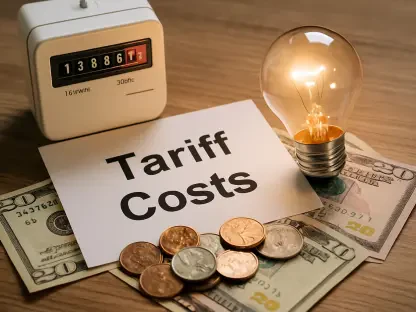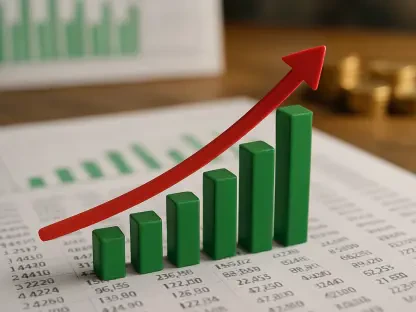In the heart of New York State’s political arena, a fierce battle over environmental accountability has unfolded, revealing the profound sway of corporate power in Albany. The Packaging Reduction and Recycling Infrastructure Act, commonly referred to as the EPR bill, aimed to hold producers responsible for packaging waste and bolster recycling infrastructure. Despite gaining approval in the Senate in previous sessions, the bill stalled in the Assembly, failing to reach the floor for a vote. This legislative setback has ignited a broader conversation about the dysfunction within state politics, where public interest often appears overshadowed by well-funded opposition. Environmental advocates, local governments, and community leaders stand on one side, pushing for sustainable reform, while a coalition of over 100 major businesses mounts a formidable resistance. The clash underscores a critical question: can progressive policy triumph in a system seemingly beholden to corporate influence?
Corporate Lobbying Powerhouse
The opposition to the EPR bill is a testament to the immense lobbying power wielded by corporate giants in Albany. Companies such as Amazon, ExxonMobil, and Coca-Cola, alongside over 100 other businesses, have formed a robust coalition to block the legislation. Environmental advocates argue that this resistance is fueled by substantial financial resources, creating a stark imbalance against grassroots supporters. A survey from Siena College indicates significant public backing for the bill, yet its failure to advance suggests that deep-pocketed interests can effectively drown out voter sentiment. Judith Enck and Blair Horner from a prominent advocacy group have highlighted how industry tactics mirror historical efforts by sectors like tobacco to derail regulation. This dynamic reveals a troubling pattern where legislative outcomes are shaped not by public need, but by the ability to fund opposition campaigns, leaving policies aimed at sustainability stranded in political limbo.
Beyond the financial disparity, the sheer scale of corporate involvement amplifies the challenge for EPR supporters. With opponents outnumbering advocates four to one in registered lobbying organizations, the landscape is heavily tilted. State laws further complicate the issue by lacking transparency in lobbying disclosures, as organizations are not required to explicitly state their positions on specific bills. Manual analysis of filings is often necessary to uncover stances on packaging legislation, a process that obscures the true extent of influence. This opacity allows corporate interests to operate with minimal scrutiny, undermining the democratic process. For environmental groups and local leaders, the uphill battle is not just about promoting a bill but also about navigating a system where power is concentrated among a few well-funded entities, often at the expense of broader community benefits and long-term ecological goals.
Economic Concerns vs. Environmental Goals
On the other side of the debate, critics of the EPR bill, represented by figures like Ken Pokalsky from the Business Council of New York State, emphasize legitimate economic concerns over the proposed legislation. The bill’s sweeping scope impacts a wide range of businesses, from large e-commerce platforms to small retailers in sectors like grocery and hardware. Opponents argue that the regulatory mandates and material bans could lead to increased costs, ultimately passed on to consumers. There is also a fear that such stringent rules might stifle innovation in packaging solutions, hindering the development of sustainable alternatives. While acknowledging the necessity for some form of waste reduction reform, the Business Council advocates for a less restrictive alternative bill, which environmentalists critique as lacking the teeth needed to drive meaningful change. This tension illustrates a fundamental conflict between immediate economic impacts and long-term environmental priorities.
The economic argument extends beyond mere cost concerns to the broader implications for New York’s business climate. Critics contend that the EPR bill, in its current form, risks placing an unfair burden on companies already navigating a complex regulatory environment. Small businesses, despite exemptions for those with gross incomes under $5 million, could still feel indirect effects through supply chain disruptions or market shifts. Meanwhile, larger corporations worry about the competitive disadvantages posed by compliance costs not mirrored in other states. This perspective highlights a critical divide: while environmental accountability is a shared goal, the pathway to achieving it remains contentious. Businesses push for policies that balance sustainability with economic viability, cautioning against measures that might yield short-term ecological wins at the expense of long-term financial stability for both companies and consumers across the state.
Legislative Gridlock and Systemic Dysfunction
Albany’s legislative process has come under sharp scrutiny following the EPR bill’s failure, with many pointing to systemic dysfunction as a root cause. The bill’s inability to reach the Assembly floor, even after amendments to lessen its impact on smaller entities, underscores how procedural chaos and powerful lobbying can derail progressive initiatives. The final days of recent legislative sessions have been particularly telling, with distractions like major policy pauses creating an environment where critical bills are sidelined. Both supporters and opponents agree that money plays an outsized role in politics, often trumping public interest. This consensus paints a grim picture of a system where entrenched interests exploit procedural inefficiencies to maintain the status quo, leaving policies like the EPR bill caught in a cycle of inertia despite widespread voter support for environmental reform.
Further compounding the issue is the disconnect between public opinion and legislative action in Albany. Advocates have repeatedly emphasized that the failure to advance the EPR bill does not reflect a lack of community backing but rather a capitulation to corporate pressure. The chaotic nature of session endings, coupled with the strategic timing of opposition efforts, often prevents meaningful debate on the Assembly floor. This pattern of gridlock is not unique to environmental policy but reflects a broader challenge within state governance, where competing priorities and influence peddling create bottlenecks. The result is a political landscape where even well-supported initiatives struggle to gain traction, raising questions about the ability of elected officials to prioritize the public good over the interests of a powerful minority, thus stalling progress on urgent issues like waste reduction.
Path Forward Amid Political Challenges
Reflecting on the stalled journey of the Packaging Reduction and Recycling Infrastructure Act, it becomes evident that Albany’s political environment is heavily skewed by corporate influence, preventing a policy with significant public support from moving forward. The intense lobbying by major businesses, coupled with legislative inertia, has highlighted a profound disconnect between voter priorities and the actions of state representatives, exposing flaws in a system vulnerable to well-funded opposition.
Looking ahead, addressing this imbalance demands actionable reforms to enhance transparency in lobbying practices and strengthen the legislative process against undue influence. State lawmakers must prioritize mechanisms that ensure public interest drives policy, such as clearer disclosure rules for lobbying activities. Additionally, fostering bipartisan dialogue to refine the EPR framework could bridge the gap between environmental and economic concerns. The path forward remains fraught with challenges, but a commitment to systemic change could pave the way for sustainable progress in New York, ensuring that future environmental policies are not derailed by the weight of corporate agendas.









